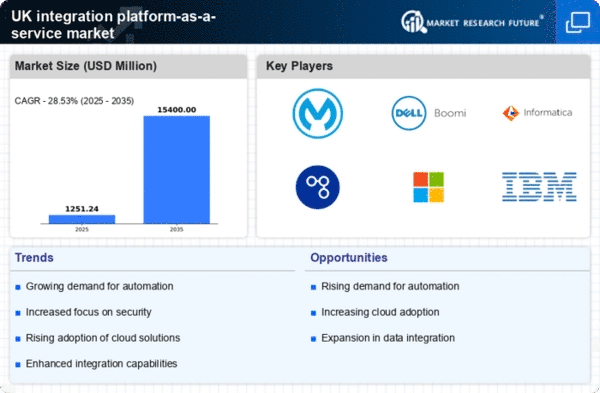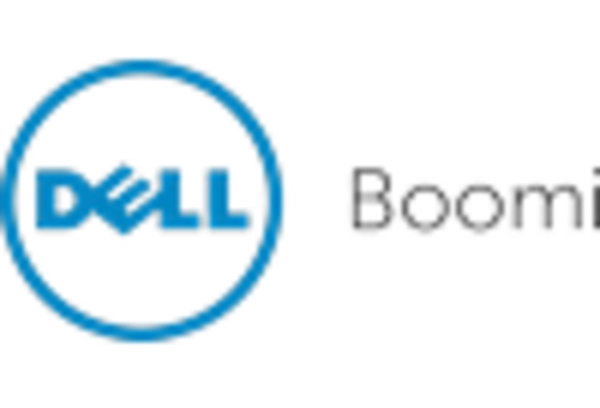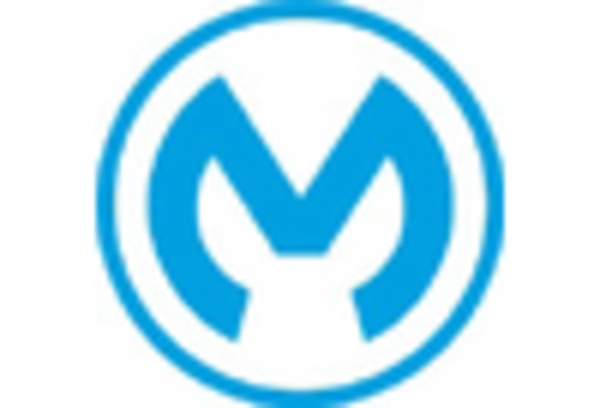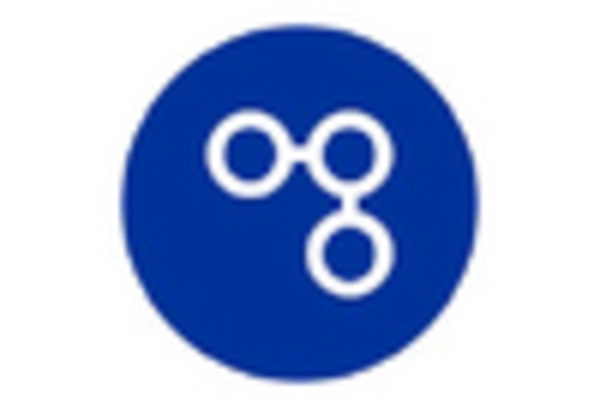Growing Adoption of Cloud Services
The integration platform-as-a-service market is experiencing a notable surge due to the increasing adoption of cloud services across various sectors in the UK. Businesses are migrating to cloud-based solutions to enhance operational efficiency and reduce costs. According to recent data, the cloud services market in the UK is projected to grow at a CAGR of approximately 20% over the next five years. This shift necessitates robust integration solutions to connect disparate cloud applications and on-premises systems seamlessly. As organizations seek to leverage the benefits of cloud computing, the demand for integration platforms that facilitate smooth data flow and interoperability is likely to rise, thereby driving growth in the integration platform-as-a-service market. The ability to integrate various cloud services effectively is becoming a critical factor for businesses aiming to remain competitive.
Emergence of IoT and Connected Devices
The integration platform-as-a-service market is poised for growth due to the emergence of the Internet of Things (IoT) and the proliferation of connected devices in the UK. As more devices become interconnected, the need for effective integration solutions to manage and analyze the data generated by these devices is becoming increasingly apparent. Businesses are recognizing the potential of IoT to drive innovation and efficiency, but they require robust integration platforms to harness this potential fully. The market is witnessing a surge in demand for solutions that can integrate IoT devices with existing systems, enabling real-time data processing and decision-making. This trend indicates a significant opportunity for the integration platform-as-a-service market to expand, as organizations seek to capitalize on the benefits of IoT and connected technologies.
Need for Enhanced Operational Efficiency
In the current business landscape, organizations in the UK are increasingly focused on enhancing operational efficiency. The integration platform-as-a-service market plays a pivotal role in this pursuit by enabling businesses to streamline their processes and reduce manual intervention. By automating workflows and integrating various applications, companies can achieve significant time and cost savings. Research indicates that organizations that implement integration solutions can reduce operational costs by up to 30%. This drive towards efficiency is compelling businesses to invest in integration platforms that offer real-time data synchronization and improved collaboration among teams. As the demand for operational excellence continues to grow, the integration platform-as-a-service market is likely to expand, providing solutions that cater to these evolving needs.
Rising Importance of Customer Experience
In the competitive landscape of the UK, enhancing customer experience has become a top priority for businesses. The integration platform-as-a-service market is responding to this trend by providing solutions that enable organizations to create a seamless customer journey. By integrating various customer touchpoints, businesses can gather and analyze data to personalize interactions and improve service delivery. Research suggests that companies that prioritize customer experience can achieve revenue growth of up to 10% annually. As organizations strive to meet customer expectations, the demand for integration platforms that facilitate real-time data access and analytics is likely to increase. This emphasis on customer-centric strategies is expected to propel the integration platform-as-a-service market forward, as businesses seek to leverage integrated solutions to enhance their customer engagement efforts.
Regulatory Compliance and Data Governance
The integration platform-as-a-service market is increasingly influenced by the need for regulatory compliance and data governance in the UK. With stringent regulations such as GDPR, organizations are compelled to ensure that their data handling practices are compliant. Integration platforms facilitate the secure transfer and management of data across various systems, helping businesses adhere to these regulations. The market is witnessing a rise in demand for solutions that not only integrate applications but also provide robust data governance features. Companies are investing in integration platforms that offer audit trails, data lineage, and compliance reporting capabilities. This focus on regulatory compliance is expected to drive growth in the integration platform-as-a-service market, as businesses seek to mitigate risks associated with data breaches and non-compliance penalties.
















